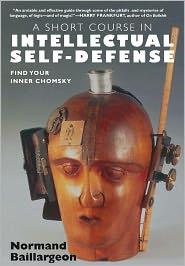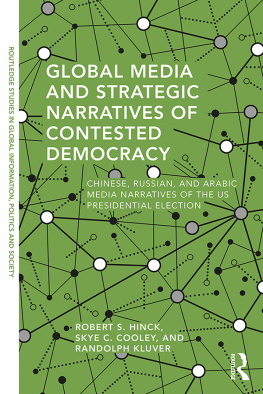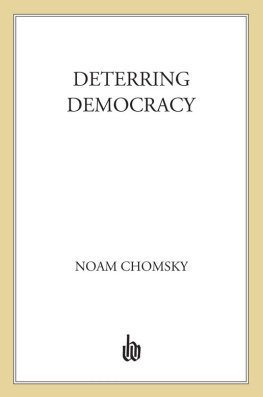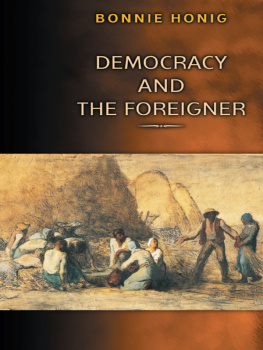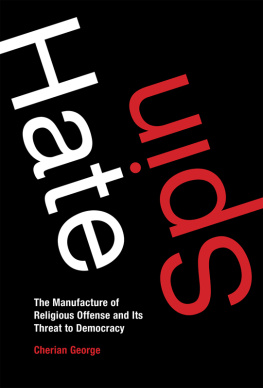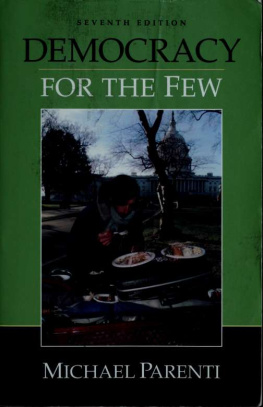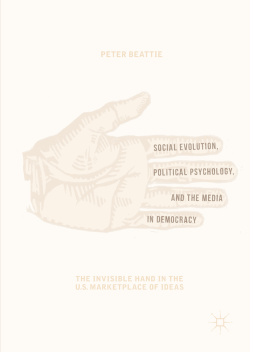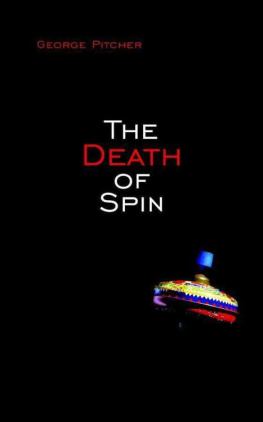Table of Contents
To Martin Gardner, the polymath,
for everything he has taught me.
I have done everything I can to recognize my debts to all
the authors I borrowed ideas from. If I failed to do so in
a particular case, please let me know so that I correct this
omission in a future edition.
N. B.
INTRODUCTION
To doubt everything or to believe everything are two
equally convenient solutions; both dispense with the
necessity of reflection.
HENRI POINCAR
The slumber of reason breeds monsters.
FRANCISCO DE GOYA
My personal feeling is that citizens of the democratic
societies should undertake a course of intellectual
self-defense to protect themselves from manipulation
and control, and to lay the basis for more meaningful
democracy.
NOAM CHOMSKY
This little book has emerged from the convergence of two of my concerns. They are not mine alonefar from itbut that does not make them any less vivid. Lacking the ability to justify each of them, which would require an entire book of its own and which, in any case, is unnecessary here, permit me simply to state them.
The first of these concerns could be described as epistemological, and includes two series of worries. First, I am concerned about the prevalence of all the beliefs that circulate in our societies under names such as paranormal, esotericism, or New Age, and which include beliefs and practices as diverse as telekinesis; telepathy; past lives; kidnapping by extraterrestrials; the powers of crystals; miracle cures; exercise programs and equipment that produce immediate results with no effort at all; communication with dead people; a range of applied Asian mysticism; chiropractic, homeopathic, astrological, and all sorts of so-called alternative medicines; feng shui; Ouija boards; the possibility of bending spoons by means of thought alone; police resorting to the use of psychics; cartomancy; and... I could go on.
Furthermore, I am concernedperhaps I should even say appalledby what appears to me to be the truly deplorable state of reflection, knowledge, and rationality in large strata of academic and intellectual life. I will say it as temperately as possible: I am staggered by some of the things that are done and said in certain sectors of the contemporary university, where a lack of education and charlatanry are flourishing. And I am not the only one to think so.
My second concern is political, and has to do with the access of citizens of democracies to an understanding of the world in which we liveto rich, serious, and plural information that allows us to understand this world and to change it. I will be frank: like many other people, I worry about the state of our media, about media concentration and convergence, and the way it is driven by the market. I worry about the propagandic role that the media have come to play in society at a time when each of us is bombarded with information and discourses trying to obtain our approval and make us act in certain ways.
We know that in a participatory democracy, education is the other major institution that has a privileged obligation to contribute to producing a sense of citizenship worthy of the name. But it is also in bad shape. Recent developments have provided serious cause for worry: for example, we seem to be blithely giving up the pursuit of the ideal of a liberal education for each person. This makes me particularly indignant, given that this training is more necessary for future citizens today than ever before. The client-centered mentality and economic reductionism that one finds in too many people these days, and particularly amongst the decision-makers of the education world, constitute, in my view, more serious reasons to be uneasy about the future of participatory democracy.
But if it is true, as I think it is, that each advance of irrationalism, of stupidity, of propaganda and manipulation, can by confronted by means of critical thinking and reflexive assessment, then, without deluding ourselves, we can take a certain comfort in spreading the art of critical thinking. From this point of view, exercising intellectual self-defense is an act of citizenship. It is what has motivated me to write this little book, which offers exactly this: an introduction to critical thinking.
What you will find in the following pages does not purport to be new or original. What I advance here is well-known, at least amongst those who are familiar with scientific literature or writings on critical and skeptical thinking. Nonetheless, I have tried to make it an accessible synthesis by presenting, as simply and clearly as possible, the concepts and skills which seem to me to be necessary for every citizen to master.
Here, then, is what you will find in this book.
In the first part, entitled Some Indispensable Tools for Critical Thinking, I begin by examining language and studying certain properties of words, before reviewing some useful notions of logic and examining the principal fallacies. The second chapter offers an overview of citizen mathematics. It deals with common forms of innumeracy, probability, statistics, and forms of data presentation.
The second part of the book, On the Justification of Belief, deals with this issue in three particular domains: personal experience, science, and the media. In other words, we will try to clarify in what cases, on what conditions, and to what extent we can hold a proposition true when it is justified by our personal experience, by recourse to experimentation, and by the media.
If the study of critical thinking is a new thing for you, I am well aware that this description does not tell you very much, and that you still do not know what exactly is meant by critical thinking or intellectual self-defense. The rest of this book is intended to explain exactly that. In the meantime, and to close this introduction, I would like to suggest a little game that may go some way to satisfying your curiosity, and may even rouse it further.
In the box below, you will find a passage taken from the final work published by the late Carl Sagan (1934-1996) during his lifetime. A reputable astronomer and an exemplary popularizer of science, Sagan also worked hard to make critical thinking known and to encourage its practice. The text Icite is adapted from a passage in which he offers a collection of precepts of critical thinking that he called a Baloney Detection Kit. Read it carefully. I suspect that some of his entries will seem a little bit obscure. But I am also convinced that, when you have finished reading this book, you will understand perfectly not only what Sagan meant, but also, and above all, why it is so important to practice these precepts. If that is indeed the case, neither you nor I will have wasted our time.
Carl Sagans Baloney Detection Kit
(Excerpts)
Wherever possible there must be independent confirmation of the facts.
Encourage substantive debate on the evidence by knowledgeable proponents of all points of view.
Arguments from authority carry little weightauthorities have made mistakes in the past. They will do so again in the future. Perhaps a better way to say it is that in science there are no authorities; at most, there are experts.
Spin more than one hypothesis and dont jump on the first idea that comes to mind.
Try not to get overly attached to a hypothesis just because its yours.... Ask yourself why you like the idea. Compare it fairly with the alternatives. See if you can find reasons for rejecting it. If you dont, others will.

